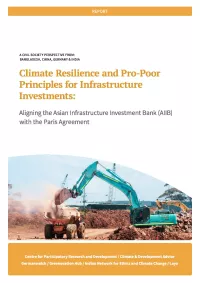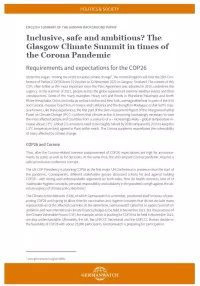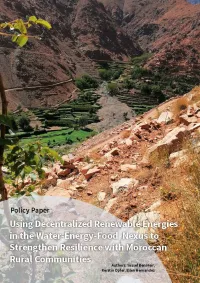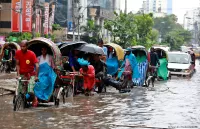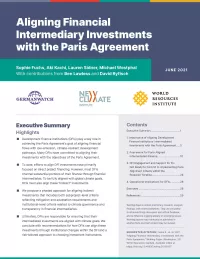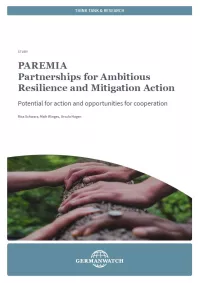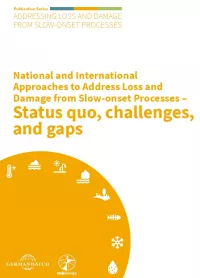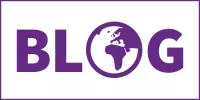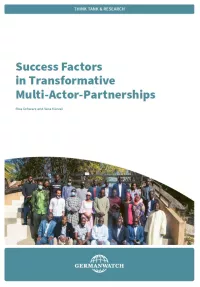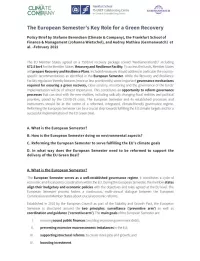Aktuelles zum Thema
This policy brief introduces the connection and interdependencies of water, energy, and food (WEF) in Morocco. It gives advice on how to achieve socioeconomic and environmental goals through coordinated management of natural resources across sectors. A special focus lies on the role of women in the WEF nexus. Looking at the WEF challenges from a nexus perspective sheds light on the wider implications of sectoral interventions and helps to identify holistic management strategies.
Climate change is already a reality. At the same time, there is a gap regarding measures to manage climate risks and impacts in vulnerable developing countries. This study analyses existing and planned financial instruments and mechanisms in countries of the Climate Vulnerable Forum (CVF). Based on six key findings, a set of conclusions on knowledge gaps and open research questions, the necessary support from the international community as well as strenghened cooperation through partnerships are presented.
In addition to amplifying extreme weather events, climate change also causes or intensifies slow-onset processes such as sea-level rise, desertification, biodiversity loss or permafrost thaw. Both types of climate change impacts cause loss and damage, impede the enjoyment of human rights and can be drivers for human mobility. In contrast to extreme weather events, dealing with loss and damage caused by slow-onset processes in the context of climate change is still neglected – both at the national and international level. The publication series "Addressing Loss and Damage from Slow-Onset Processes" responds to this challenge and aims to foster awareness of the urgency to act in this area and provide input for processes at the national and international levels.
As a response to the Covid-19 crisis the EU has agreed on a historic recovery package of 750€ Billion, which includes funds for EU member states. In order to apply for financial support, EU member states need to provide Recovery and Resilience Plans. They may take into consideration country-specific recommendations, developed annually to address macroeconomic imbalance issues among EU Member States as identified within the European Semester.

